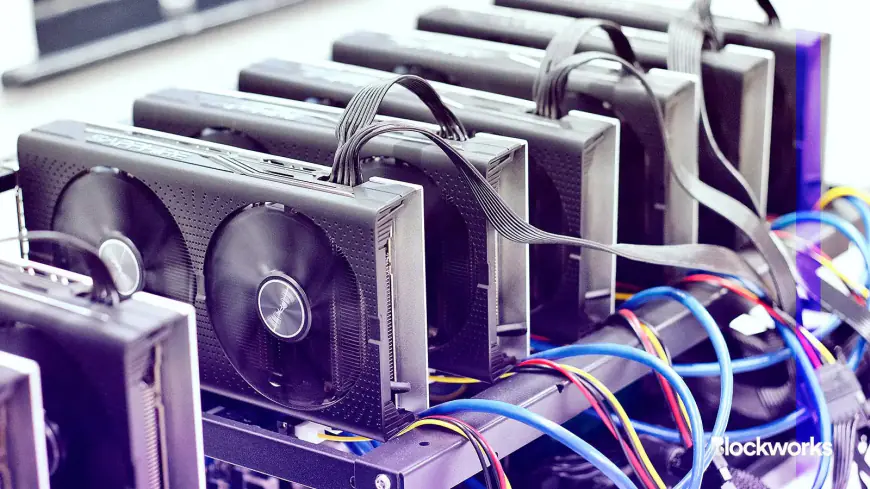Crypto and the Environment: Is Bitcoin Mining Sustainable?
Discover the environmental impact of Bitcoin mining and explore sustainable practices in the cryptocurrency industry. Learn how renewable energy is shaping the future of crypto.

The rise of cryptocurrencies, particularly Bitcoin, has sparked a global debate on the environmental impact of blockchain technology and mining. As more people become aware of climate change and its implications, the sustainability of Bitcoin mining has come under scrutiny. This article will explore the environmental implications of Bitcoin mining, the sustainability of current practices, and potential solutions to reduce its carbon footprint.
Understanding Bitcoin Mining
Bitcoin mining is the process by which new Bitcoins are created and transactions are verified on the Bitcoin network. Miners use powerful computers to solve complex mathematical problems, which requires significant computational power and, consequently, energy. The difficulty of these problems increases as more miners join the network, leading to higher energy consumption.
The Energy Consumption of Bitcoin Mining
According to the Cambridge Centre for Alternative Finance, the Bitcoin network consumes more energy annually than some entire countries. This staggering figure raises questions about the environmental impact of mining operations, particularly regarding their reliance on fossil fuels. The following points outline the key concerns associated with Bitcoin mining energy consumption:
- High Electricity Usage: The energy-intensive nature of mining leads to substantial electricity usage, often sourced from non-renewable energy sources, contributing to greenhouse gas emissions.
- Carbon Footprint: The carbon footprint of Bitcoin mining is a major concern. Studies indicate that a significant percentage of Bitcoin mining occurs in regions where coal is a primary energy source, exacerbating climate change.
- Resource Allocation: Critics argue that the vast amounts of energy used for Bitcoin mining could be better utilized for more productive and sustainable purposes.
Bitcoin Mining and Renewable Energy
In response to environmental concerns, many Bitcoin miners are exploring the use of renewable energy sources to power their operations. Some of the renewable energy sources being adopted include:
- Hydropower: Hydropower is a significant source of energy for Bitcoin mining, particularly in regions with abundant water resources. Countries like Iceland and Norway have leveraged their hydropower infrastructure to support mining operations.
- Solar Energy: Solar energy is becoming increasingly popular among miners seeking sustainable energy solutions. By utilizing solar panels, miners can reduce their reliance on fossil fuels.
- Wind Energy: Wind energy is another renewable resource that miners are tapping into. Wind farms can provide a steady supply of electricity, especially in areas with consistent wind patterns.
The Role of Regulations in Sustainable Mining
Governments and regulatory bodies around the world are starting to recognize the environmental impact of cryptocurrency mining. Some regions are implementing regulations aimed at promoting sustainable practices:
- Incentives for Renewable Energy Use: Some governments are offering tax incentives and subsidies for mining operations that utilize renewable energy sources, encouraging miners to transition away from fossil fuels.
- Carbon Taxes: Implementing carbon taxes can help disincentivize high-emission mining operations and promote cleaner alternatives.
- Monitoring and Reporting: Regulatory frameworks that require miners to report their energy usage and sources can increase transparency and hold operations accountable for their environmental impact.
Innovative Solutions for Sustainable Mining
Several innovative solutions are emerging to enhance the sustainability of Bitcoin mining:
- Mining with Excess Energy: Some mining operations are setting up in locations with excess energy production, such as areas with abundant hydropower during off-peak times. This allows miners to utilize energy that would otherwise go to waste.
- Mobile Mining Units: Companies are developing mobile mining units powered by renewable energy sources that can be deployed in remote locations, reducing the need for extensive infrastructure.
- Energy Efficiency Improvements: Advancements in mining hardware and software are leading to more energy-efficient mining processes, reducing the overall energy consumption of operations.
Conclusion
The sustainability of Bitcoin mining remains a contentious issue, but there is hope as the industry shifts toward renewable energy sources and innovative practices. While the current state of Bitcoin mining presents challenges for the environment, the growing awareness of these issues is prompting change. By embracing sustainability and seeking cleaner energy solutions, the cryptocurrency community can work towards a more eco-friendly future.
What's Your Reaction?



















